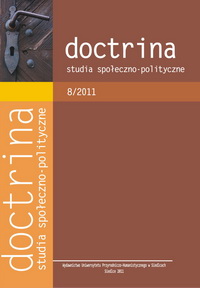Globalny ład okresu przejściowego
Abstrakt
Twenty years after the end of Cold War the world is still in the process of deep changes. The collapse of communism and disintegration of Soviet Union put the end of bipolar system and the new era begun in international politics. Many state controlled economies, especially in Central and Eastern Europe, became democratic and market oriented countries. Through over one decade United States was recognized as unique superpower. The rapidly spreading globalization has made countries strictly interdependent, especially in economy, but also mutual dependence in the field of security has substantially increased. It happened so because of new threats for security, like international terrorism, WMD proliferation, rising number of ethnic-cultural conflicts. There is no threat in the world of global nuclear war nor big state to state aggression on large scale, but new threats, especially terrorism and cyber-atack possibility, are becoming very probable. In the contemporary world, with all economical freedom, especially international production factors movement, there are good and profitable parts of that, but also bad ones, which make international economy and the economy of different countries very vulnerable on crisis, as We could see in 2008–2009 period. It is so because of uncontrolled activity of so called non-state actors, as for instance international financial corporations. Also European integration, especially in Euro-zone, because of the world financial crisis impact and imperfect euro- mechanisms is in troubles. In such a conditions economic security is becoming so crucial that together with many other aspects of security (terrorism, cyber-atacks, impact of climate changes), makes a new picture of world security – new paradigm. The article adreses the major international and regional security problems, the position of USA in more and more multipolar system, rising ambitious and position of China and Russia. The approach of author to the envisaged problems is interdisciplinary one.




